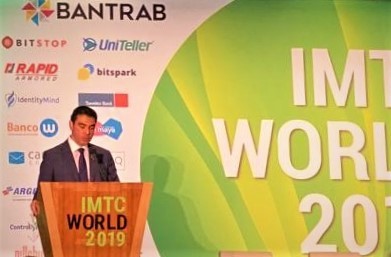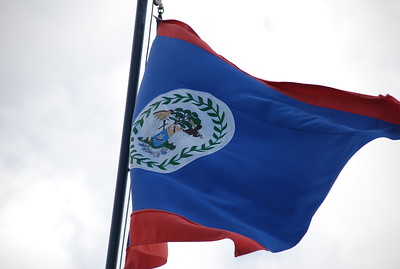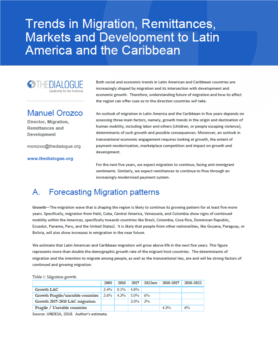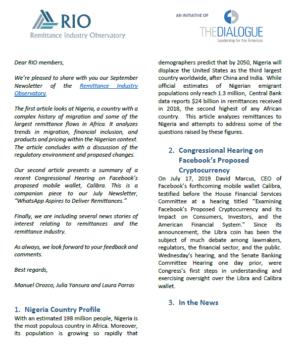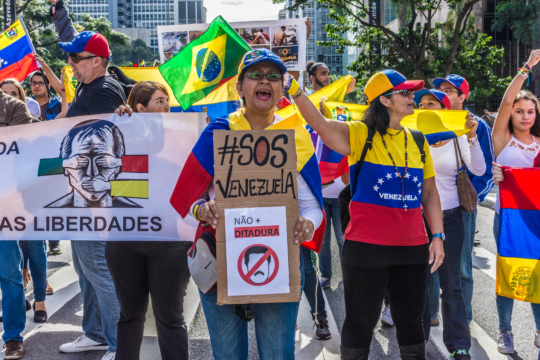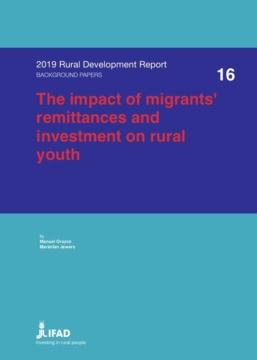
Congressional Staff Briefing: Covid-19 & Latin America and the Caribbean
On April 16, Dialogue experts briefed key congressional staff in both the House and Senate on Covid-19 and its impact on Latin America and the Caribbean.
On April 16, Dialogue experts briefed key congressional staff in both the House and Senate on Covid-19 and its impact on Latin America and the Caribbean.
On April 2, Manuel Orozco, Mariellen Jewers, Piero Coen and Gene Nigro discussed the economic and health consequences caused by Covid-19 to migrants and how it impacts Latin America and the Caribbean. Estimates show that remittances to LAC countries will register at a negative seven percent decline in 2020.
Manuel Orozco explica el impacto económico de la panedemia de Covid-19 para los migrantes latinoamericanos en Estados Unidos, sus familias que reciben remesas y para los países de la región. Su análisis se concentra en los impactos relacionados a la crisis de desempleo proyectada para el país.
La pandemia causada por el Covid-19 está creando estragos y consecuencias económicas en todo el mundo. En 2020, se proyecta caída de -5 por ciento de las remesas en Nicaragua, recibiendo $75 millones menos, con una caída mayor del turismo, la economía caerá en -2 por ciento.
This analysis offers a glimpse of the potential impact of the Coronavirus Disease 2019 (COVID-19) pandemic on US immigrants and family remittances. Past events involving worldwide crises can offer insight as to how this pandemic will likely affect remittance transfers. Considering migrants’ financial and health vulnerabilities as well as the forecast recession, a conservative estimate shows that remittances will register a -3 percent decline in 2020 relative to 2019, from $77 billion to $75 billion.
This report analyzes trends in remittances to Latin America and the Caribbean in 2019 and explores the factors related to slowing remittance growth. Family remittances to the region grew by approximately 8% compared to 2018 and totaled nearly US$100 billion, which stands in contrast to the region’s slower economic growth of 0.6%.
This report analyzes the role of money transfer intermediaries on migrants sending remittances to Latin America and the Caribbean. We look at the current modernization of the payments industry, specifically as it relates to digital payments, analyzes trends in transfer costs, and discusses the proposed changes to the ‘Remittance Rule,’ including the consequences they may have on remittance senders.
La exclusión y la expulsión son los resultados de estructuras estatales dañadas, afectadas por muchos países en condiciones estatales fallidas, así como la ausencia de consenso o polarización social y política sobre el tipo de sujeto político que conforma la sociedad moderna.
Manuel Orozco interviews with Gabriela Fías of CNN Global Portfolio to discuss the relationship between political instability and remittances, highlighting the impact of US foreign policy on Latin American countries.
Manuel Orozco, director of the Migration, Remittances & Development program at the Inter-American Dialogue, presented at the International Money Transfer and Payments Conference.
De-risking – which involves the cancellation of correspondent relationships by large international banks – has slowed on a global level, However, the threat remains in the Latin America and Caribbean region.
Understanding the future of migration and how it affects the region can offer cues as to the direction countries will take.
The September 2019 Newsletter of the Remittance Industry Observatory looks at Nigeria, a country with a complex history of migration and some of the largest remittance flows in Africa and presents a summary of a recent Congressional Hearing on Facebook’s proposed mobile wallet, Calibra.
The Inter-American Dialogue carried out surveys of Venezuelan migrants, as well as other populations, in four Latin American countries – Chile, Colombia, Costa Rica and Panama.
Manuel Orozco, director of the Migration, Remittances, and Development Program, recently co-authored a report with Mariellen Jewers titled “The impact of migrants’ remittances and investment on rural youth.”
 Video
Video
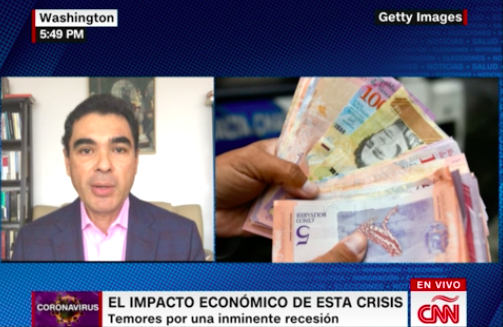 Video
Video
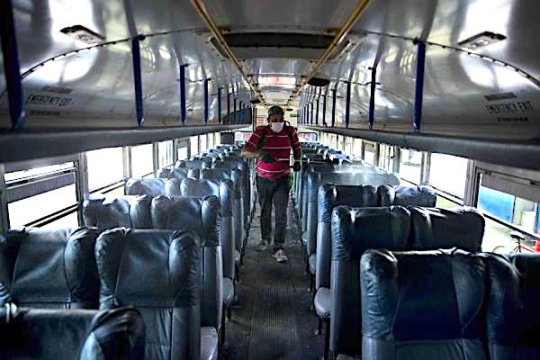

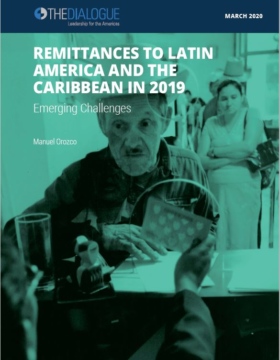
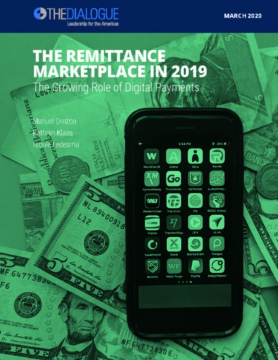

 Video
Video
